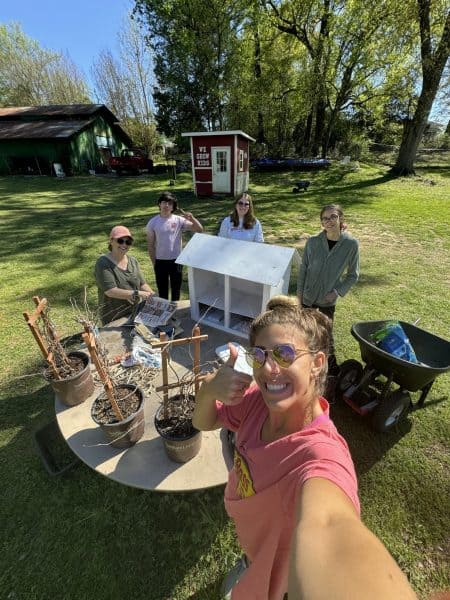‘I will never forget’: How sexual assault shapes—or doesn’t shape—student experience
More training? Less drinking? More advocacy? As toxic campus culture continues to threaten students, some are wondering how they can best protect one another.
It’s dark on The Strip, and she thinks someone is following her. What this student does or doesn’t do next could have a massive effect on her for the rest of her life—which is why sexual assault survivors and their advocates are working to make campus resources accessible and unnecessary.
March 25, 2021
In 2017, the National Center for Education Statistics found 28,900 total reports of criminal incidents on college campuses. Out of those reports, more than one third were forcible sex offences.
While the prevalence of sexual assaults on college campuses is undeniable, many students at The University of Alabama feel that the problem, despite its magnitude, remains unseen. The murky definition of sexual assault and its causes has led to a lack of discussion around campus and a normalcy of druggings, sexual harassment and assault, some students say.
MISCONCEPTIONS
Melissa Hanks, the clinical coordinator for the Tuscaloosa SAFE Center, said one misconception about the nature of assaults is that druggings only happen when alcohol is involved. While a student may drink consensually, Hanks said, any action an abuser takes against them while inhibited is still an assault. The use of date-rape drugs is less common and difficult to catch, but it does occur.
Hanks said students should seek help as soon as they have experienced an assault, believe they may have been drugged, or cannot fully recall parts of their memory in which they suspect someone may have taken advantage of them.
According to Hanks, as of early March 2021 the SAFE Center had conducted five blood and urine tests. Since November 2018 they have conducted 44 tests total. While students make up the majority of these tests, other community members received tests as well.
The SAFE Center sends these collections to the Tuscaloosa Police Department for further investigation, but Hanks said the center is not told whether or not the sample reveals the presence of a date-rape drug.
There’s this stigma that nothing happens to males and that’s not true at all.
— Allie Johnson
Allie Johnson, a freshman psychology major and ambassador for the Women and Gender Resource Center (WGRC), said she thinks students have become desensitized to the occurrences of drugging on campus.
“Spiking is so normalized on college campuses, and especially here,” Johnson said. “There’s always that saying, ‘You’re going to get spiked at least once in college,’ and that’s such a sad thing, like, that’s a big deal, and everybody just kind of brushes it off because it does happen and it’s normalized.”
The WGRC provides victim support, as well as information about common (and dangerous) misconceptions about the realities of toxic campus culture. The most important aspect of the WGRC is that it serves all students, regardless of gender or background.
“Males can go there [too],” Johnson said. “There’s this stigma that nothing happens to males and that’s not true at all, or that males don’t have mental health problems, or that males don’t get sexually assaulted, when obviously they do.”
According to the National Sexual Violence Resource Center (NSVRC), 51.1% of female victims reported being assaulted by an intimate partner and 40.8% by an acquaintance. For male victims, 52.4% reported being assaulted by an acquaintance and 15.1% by a stranger.
Christopher Harden, a senior double majoring in microbiology and Latin, said the damaging domino effects of harassment are actions that seem harmless by perpetrators, but are widely accepted as “a simple fact of life” for women.
“As a gay man in the South, I’ve been called a number of slurs and have been sexually assaulted while under the influence, but I don’t feel like these occurrences even hold a match up to what women on campus go through on a daily basis,” Harden said. “From catcalling, to being followed and even physical assault, the sheer number of horrific incidents has led to these acts being thought of as commonplace.”
Jackie Stumpff, a senior double majoring in marketing and management, said toxic masculinity is partly to blame for perpetuating a culture where threatening or demeaning behavior is seen as “inevitable” or worse, accepted.
“I think a lot of people view the way some men treat women as being personable and ‘masculine.’ However, this is completely false,” Stumpff said. “Such behavior is disrespectful and predatory. Believing this lie only perpetuates rape culture.”
Izzy Padilla, a sophomore majoring in news media and a member of College Moxie, a women’s empowerment group on campus, said a woman’s choice in clothing is often blamed for harassment and groping at places on The Strip, like Rounders.
“People think that just because girls may wear revealing clothing means that they are ‘asking for it,’” Padilla said. “That’s not how it works.”
While assaults and misinformation continue to be commonplace at the University of Alabama, there are still a multitude of safe spaces, resources and other organizations for survivors to ask for support.
RESOURCES AND REPORTING
Organizations such as the SAFE Center, the UA Counseling Center and the WGRC all work to protect students who are victims of sexual assault, while also providing important resources and education on how to hold others accountable in hopes of minimizing student statistics.
Greg Vander Wal, the executive director at the UA Counseling Center, said the best way to connect with services is to simply call and schedule an appointment.
While these organizations are invaluable support systems for students, the most significant action a victim of sexual assault, harrassment, or domestic violence can take is filing a report under Title IX. Title IX protects students and enables the University to investigate allegations and protect the complainants rights.
According to the University of Alabama website, any instance of sexual misconduct should be reported as soon as possible either to the UAPD or the Title IX coordinator. Students can also confide in a responsible reporting official, such as an educator, who will help them file a report as well. Although this information is readily available under the UAct page of the University’s main website, it is not advertised elsewhere and may be difficult for students to find.
Many individuals feel very scared and often blame themselves. It’s hard to talk about these things.
— Jackie Stumpff
But sometimes no amount of resources can overpower the shame and reluctance some victims might feel when trying to report.
“Reliving the trauma of being sexually assaulted multiple times in the filing of a police report that may or may not be believed is damaging to one’s mental health,” Harden said.
Vander Wal said the anxiety of not knowing what will happen with their case or attacker can make it very hard to want to report.
“Sometimes it’s very hard to open up about difficult experiences, especially in a circumstance where something very personal happens,” Vander Wal said. “We’re not sure what the result will be. That can be a scary process.”
Stumpff said the epidemic of victim-blaming might lead individuals to avoid asking for help, regardless of their gender. Others might fear not being believed.
“I think a lot of people think reporting such occurrences is easy or simple,” Stumpff said. “Many individuals feel very scared and often blame themselves. It’s hard to talk about these things.”
According to the National Sexual Violence Resource Center (NSVRC), of all reported assaults, false accusations fall somewhere between 2% and 10%. To claim that most reports are false, Stumpff said, discredits the millions of victims who are telling the truth, as well as the victims who don’t decide to report.
Not only does the trauma of having to relive the experience make a victim less likely to report, but their relationship with their attacker also plays a large role.
According to the Maryland Coalition Against Sexual Assault (MCASA), only 25% of sexual assaults are reported to police when the offender is a current or former intimate partner. When the offender is a friend or acquaintance, only 18% to 40% of sexual assaults are reported. The highest likelihood of a victim reporting is 46% to 66% when an offender is a stranger.
Various survivors interviewed by MCASA list beliefs that the police could not or would not do anything to help, fear of the justice system, feelings of the crime not being “serious enough” and fear of reprisal as reasons why they chose not to report.
Preventing sexual assault and supporting survivors is a skill that everyone has a social responsibility to learn, advocates said. The University has an array of organizations and resources that can teach students how to be good support systems, as well as ways to avoid becoming bystanders themselves.
ALLYSHIP
Men Against Rape and Sexual Assault (MARS) is an organization on campus that works to educate male peers on the realities of sexual assault on campus.
Jack Kappelman, a junior political science major and the president of MARS, sought to create change through the Student Government Association (SGA) his freshman year but has since found other avenues to advocate on the issue. Kappelman said MARS’ goals go beyond just changing the stigma of sexual assault at the University of Alabama.
“This isn’t an issue that is unique to UA, even nationally, we know that the vast majority [90% according to the National Intimate Partner and Sexual Violence Survey] of sexual assaults are perpetrated by men,” Kappelman said. “That’s not to say that all sexual assaults are perpetrated by men against women; a sizable chunk of those statistics are men who can be sexually assaulted.”
A lot of Kappelman’s work with MARS is geared specifically toward men who are new to campus, whether they’re freshmen or transfer students. The issue is so pervasive, he said, that nearly every member knows someone who has been affected by sexual assault.
“I think it’s important that men here at UA are knowledgeable about what is and is not acceptable behavior, not necessarily so that they don’t perpetrate, but so that they don’t allow their friends or peers to get away with acting so inappropriately,” Kappelman said.
Vander Wal said it’s important that all students are aware of resources on campus so that they can help others.
“Be aware of what services are on campus. Be aware of them and be willing to recommend them or make a referral,” Vander Wal said. “If we can keep that in mind, a willingness to ask the question, a willingness to listen well and a willingness to know the referral resources, we could all be really good community members.”
NEW INITIATIVES
Students on an individual, organizational and school-wide level are all doing what they can to spark conversation and change.
“One of the biggest issues going to a university of this size, [is] a lot of the people know that the resources are there, [but] they don’t necessarily know how to access them,” said Grace Federico, a sophomore majoring in apparel and textiles and an SGA senator working on making on-campus resources more accessible.
One solution Federico proposed was adding more blue light phones around campus. If a student’s phone dies or they believe someone may be following them, they can utilize one of the blue light phones to contact the UAPD or, if the situation escalates, to “press one button on the blue light phone, run to the next one and press it again” so that the UAPD can “track the path that you’re going because it will send a signal.”
But after further investigation she found that the phones, which cost about $7,000 a piece, hadn’t been used at all within the past year – a problem she attributed to a lack of awareness about what the phones are supposed to be used for.
Recently, Federico has worked on a piece of legislation with another senator to encourage the University to create a virtual sexual assault prevention program. The proposed program would be a required part of AlphaPoint.
In addition to providing foundational information about how to prevent assault and what to do if a student experiences or is a bystander to an assault, Federico also said resources should be consolidated so they are easier to find. She plans to do this by creating a list of resources and including it in the first email from every professor at the beginning of the year, as well as on the front page of Blackboard.
HOW UA CAN IMPROVE
Several students said they think the University could be doing to prevent or minimize sexual assault on and off campus.
Harden said the University must find a way to encourage a safer academic and social environment whether students are on campus or off.
“These behaviors are allowed to continue on account of a number of social stigmas surrounding how young people are meant to act and socialize,” Harden said. “[It] shows a lack of educational resources devoted to tackling social issues and teaching consent and healthy relationship practices.”
Padilla said the school should make sexual assault education more of a priority than an afterthought, while others are asking university leaders is to be more forthcoming with the data about instances of sexual assault on campus.
Such serious instances are not getting reported, are not getting investigated and are getting swept under the rug.
— Jackie Stumpff
The University releases a daily crime log under the Clery Act but the only cumulative numbers they provide to the public are in annual campus security reports. Access to more detailed and timely information could help those trying to implement concrete change on campus, Federico said.
“I have unfortunately not gotten to see those statistics,” she said. “I do think it’s important to know how often those kinds of things are happening in order for people to become aware of it.”
Knowing the numbers would also help victims feel like their experiences are being validated and taken seriously, Stumpff said. She said she’s heard of two instances of sexual assault in the past two weeks, but those stories aren’t being reflected in local news or in any public-facing data.
“This suggests that such serious instances are not getting reported, are not getting investigated and are getting swept under the rug,” Stumpff said. “This is extremely concerning because the assault and violation of human beings is completely and totally wrong. Those people should be heard and supported in every way possible.”
Captain Jack Kennedy, the commander of the Tuscaloosa Police Department’s (TPD) Violent Crimes Unit, said gathering statistics about sexual assault in Tuscaloosa is not impossible, but it’s difficult due to the many definitions of sexual assault and the difference between a definite, violent crime and an ambiguous case requiring a special investigation.
Jurisdiction may also affect these numbers, as the TPD covers cases throughout the Tuscaloosa city limits. UAPD is the primary source in dealing with crimes on campus. Regardless of circumstances, however, Kennedy emphasized that anyone who reports an experience of sexual assault will be taken seriously and that their case will be fully investigated.
“We would never turn anyone away,” Kennedy said. “[We] accept every case.”
But even if such statistics were readily available to the public, they would not include a key portion of sexual assaults: those that go unreported.
“
I was the perfect target.
I was the perfect target.
AMONG THE UNCOUNTED
Behind all the hidden statistics and pie charts circulating the internet, some are suffering in silence as they wait to be heard and taken seriously.
“What’s important to know is that my entire life I went to private Christian schools that did not condemn toxic masculinity, did not support healthy inter-sex friendships, and did not address sexual education in a correct and thorough manner in any way, shape, or form,” said an anonymous student, detailing the attack that took place their freshman year at the University of Alabama. “I was the perfect target. He told me that he thought his actions were what I wanted because I showed up to the event we were both at alone. I told him that was bullcrap and to get real.”
The student said that, to this day, their attacker still messages them every now and then trying to apologize for what he did.
“Do I regret not reporting my assault? Yes and no. I felt empowered to communicate to him that my decision to not report him was me showing him grace—but not forgiveness,” the student said. “This made me feel like I was more in control after experiencing such vulnerability and weakness.”
The student said that they came forward to show how rampant rape culture is on this campus and how badly it needs to be addressed.
“That experience is one that, no matter how hard I try, I will never forget,” the student said. “People that are victims need to be heard, and predatory individuals need to face consequences.”











